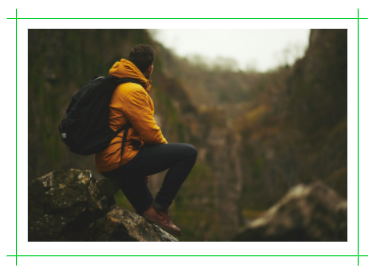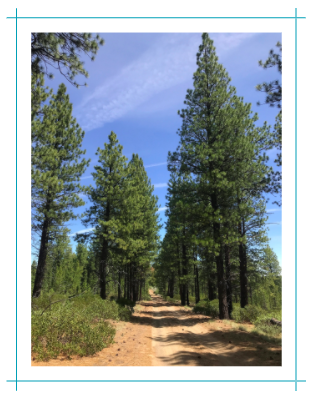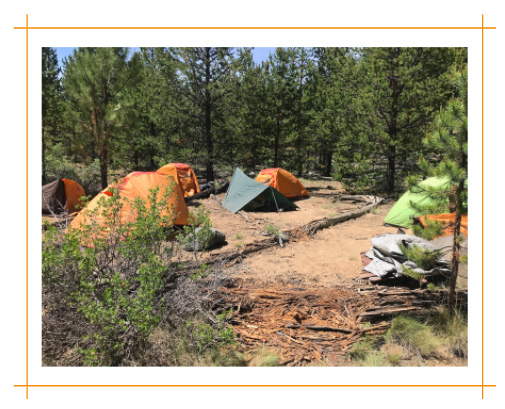Is Wilderness the Right Choice?

All of us know of teens or young adults who seem to have a harder time growing up than others. They have various struggles, and these struggles can derail them from getting on with their lives. But there are options for struggling teens, and those who are lucky enough to find them can turn their lives around.
In earlier posts, I wrote about my trip to Utah to visit therapeutic programs to help these struggling teens, and promised to write more about the various options. The first option I would like to share with you is a wilderness program, since I think that there are often many misconceptions about what a wilderness program is.
What is wilderness?

Wilderness programs provide students with an environment that gets them away from harmful influences by immersing them in nature. There they come face to face with themselves, their behaviors, and the negative forces that have been with them in their lives. These kids are usually in patterns that include poor decision-making, the choice of negative peers, and school failure or avoidance. Sometimes they have been dabbling in substance use (drugs, alcohol, smoking) and their actions have usually upset the entire household. The attention-getting behaviors usually are a symptom of more profound issues that need to be addressed. Families realize that something has to change, and are willing to take serious steps to get their children the help they need. Kids, on the other hand, rarely think that going to a wilderness program is a great idea – at least in the beginning.
What can be expected?
What happens in a reputable, quality, clinical wilderness program? First of all, every action and interaction is designed to be instructive and therapeutic. Masters and PhD level psychologists, social workers, and marriage and family therapists all make up the therapeutic team that works with the adolescent. Therapy is done in group sessions with positive peer interactions, as well as individually. Kids start to identify the issues that lie underneath all the negative behavior. Sophisticated clinical assessments can also be made in the field, and usually yield extremely accurate results since the teen usually starts to shed their armor by then.
Tell me more…
Wilderness programs provide students with an environment that gets them away from harmful influences by immersing them in nature. There they come face to face with themselves, their behaviors, and the negative forces that have been with them in their lives. These kids are usually in patterns that include poor decision-making, the choice of negative peers, and school failure or avoidance. Sometimes they have been dabbling in substance use (drugs, alcohol, smoking) and their actions have usually upset the entire household. The attention-getting behaviors usually are a symptom of more profound issues that need to be addressed. Families realize that something has to change, and are willing to take serious steps to get their children the help they need. Kids, on the other hand, rarely think that going to a wilderness program is a great idea – at least in the beginning.

What happens in a reputable, quality, clinical wilderness program? First of all, every action and interaction is designed to be instructive and therapeutic. Masters and PhD level psychologists, social workers, and marriage and family therapists all make up the therapeutic team that works with the adolescent. Therapy is done in group sessions with positive peer interactions, as well as individually. Kids start to identify the issues that lie underneath all the negative behavior. Sophisticated clinical assessments can also be made in the field, and usually yield extremely accurate results since the teen usually starts to shed their armor by then.
Wilderness is NOT and never should be punitive, harmful, or survivalist. The physical and emotional well-being of the individual is always highly respected. Parents are brought into the therapeutic process so that the entire family can be a part of the positive change in a student’s life. When an educational consultant is involved, the therapist also works closely with the consultant to update him/her on the progress of the student, and to discuss next steps.
After wilderness
What might those next steps be? Sometimes the kids go home – but there need to be supports and a plan in place to be sure that the gains made in treatment hold. Many times the teen will go on to a residential treatment program, therapeutic boarding school, or traditional boarding school, depending on their need. A residential treatment center, or RTC, has the most clinical approach, usually with a psychiatrist on staff, multiple specialized therapeutic sessions per week, individualized therapy, 24/7 staff on call, and of course, school for the kids. However, in these cases the psychological/emotional needs of the student must be the primary focus in order for the learning to eventually fall in to place again. A therapeutic boarding school is very similar to an RTC, but usually has slightly less therapeutic intervention. Then there are “step-down” programs that students can attend once they are ready to integrate more and more into a more traditional setting. And of course, there are more traditional boarding schools that work for some kids coming out of wilderness, or who have graduated from a therapeutic program. (I wrote an earlier article about these options.)
Not all programs are the same, and there are sometimes subtle and not-so-subtle differences between them. Educational consultants travel constantly to see first hand what programs have to offer, and to be sure that the programs and schools deliver on their promises. I have seen great websites for programs that I don’t use or trust, and I have had parents call me after they learn the hard way that not all programs do what they say they will. I have also seen amazing programs that are life-changing for teens.
But after visiting numerous programs in various parts of the United States, this is one thing I can say with certainty. There are some fabulous, dedicated, highly trained, caring, compassionate, and experienced therapists and staff in these programs. They choose spend their lives working with the kids that are in crisis, and their work not only changes lives, but saves lives as well. There is nothing more rewarding for any of us than to see a young person’s life turn around and to see hope restored.
Would you like to learn more about wilderness programs? Contact us













